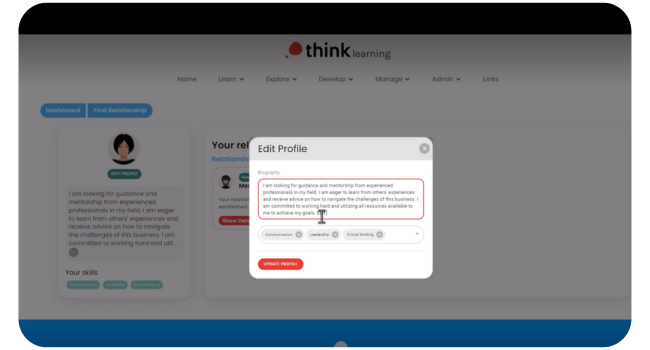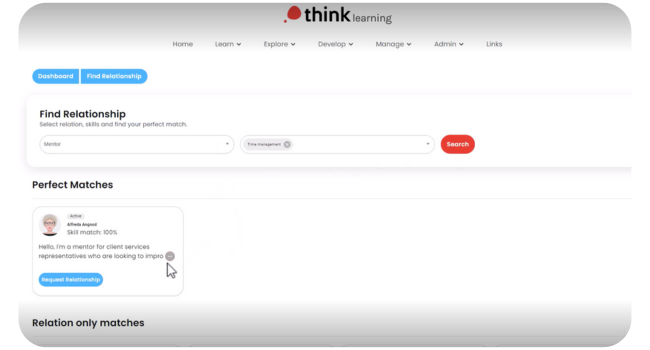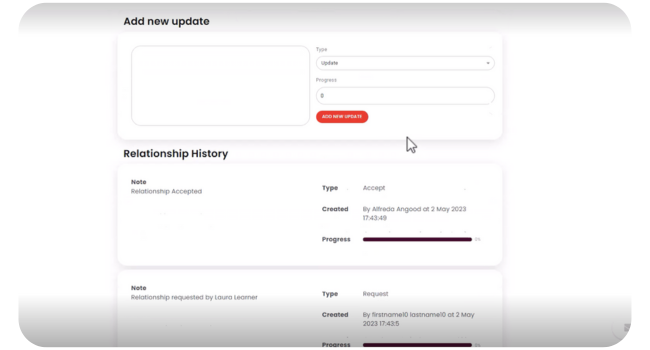
Creating a clinical mentoring programme can help your employees go from strength to strength and remain invested in your Trust.
From nurses to GPs and surgeons, mentoring programmes stand to benefit all types of clinical staff in the NHS.
In fact, NHS Improvement identified mentoring as one of “Eight high impact actions to improve the working environment for junior doctors“.
When new starters are beginning their careers in the NHS, they’re likely going to rely heavily on their peers to show them the ropes and encourage them in their development.
Establishing a clinical mentoring programme can help you standardise this process and more effectively support your team.
In this blog, we’ll go through:
- What clinical mentoring is
- Who clinical mentoring can help
- The importance of mentoring in the NHS
- How to set up a clinical mentoring programme
Let’s get started.
What is clinical mentoring?
Clinical mentoring is a type of mentoring using practical training and consultation that allows medical and clinical professionals to provide high quality patient care, improve on-the-job knowledge and help new starters kick-off their careers.
Who can clinical mentoring help?
Like regular mentoring programmes, clinical mentoring can help more than just the mentee.
In fact, the following stand to gain from a good quality mentorship:
- NHS workers as mentors
- NHS workers as mentees
- Patients
- The organisation
Let’s look at why.
NHS workers as mentors
Becoming a mentor is highly rewarding. Not only are you passing on your knowledge, experience and skills, but more specifically, you’re helping someone who was once like you.
They might be starting in the same role you started in, or looking to develop similar skills to you.
Whatever it is they’re looking for out of their mentorship, the mentor stands to gain just as much.
Skills you can gain as a mentor include:
- Communication skills
- Organisation skills
- Prioritisation
- Empathy
- Leadership skills
NHS workers as mentees
The mentee in your clinical mentor programme also stands to benefit.
They’ll feel integrated into the team, and into their role. Having a mentor gives them someone senior they can turn to for advice and guidance.
But they stand to gain more practical skills too, like:
- Confidence
- Communication
- Organisation
- Practical, on-the-job skills
All of this can lead to other benefits too.
Longer employee retention, improved productivity, etc.
Patients
Of course, upskilling your team members and creating a strong culture will have a direct impact on your patients too.
Patient care is of paramount importance, and diverting time to mentoring might feel like a mistake.
However, investing in your team members and showing you’re interested in their development only improves their output. And when they’re working in the clinical field, that output is going to impact your patients.
Your organisation
When your team are working better, and are delivering better care, it is going to have a compounding effect on your organisation. From a hospital, to a GP, the long-lasting benefits of a mentoring programme can be monumental.
You can expect to see:
- More engaged staff
- Better productivity
- Happier employees
- High quality patient care
- Longer employee retention
- Better working culture
Building a culture that works for your employees is paramount. It opens dialogue between employees and across teams that can lead to improved processes, better communication and more collaborative working.
Why is mentoring important in the NHS?
Coaching and mentoring are two easy ways to develop health and care teams. The great thing about mentoring is that you’re tapping into the resources you already have, your people.
Think about new starters in the NHS, from junior doctors to nurses and clinical staff. Chances are, when they first start they’re overwhelmed as they migrate from the classroom to on-the-job training.
Buddying up new starters with experienced workers allows for greater learning transfer and stronger integration into the team.
And it’s not just your junior teams that stand to benefit.
Mentoring benefits your mentors too through leadership skills, communication, organisation and management.
🚀 Pro Tip
Think offers a learning toolkit built from its healthcare LMS. With tools that can support mentor matching, nurse revalidation, training record passports and more, we can help build you a fully bespoke learning solution.
Book a demo to learn more
How to set up your own clinical mentoring programme
Before we get into breaking down building your own mentoring programme, it’s worth sharing the NHS coaching and mentoring hub.
If you’re not ready to set up your own internal mentoring programme, then it might be worth sharing the above with your team in case it’s something they want to explore.
When it comes to setting up your own clinical mentoring programme, we’re going to use our own LMS as an example.
With Think, you can access our mentoring tool, ThinkLink, which can help you set up, manage and report on your impact.
If you’re looking for other mentoring tools, then there are a whole host we would recommend investigating too.
In this guide, we’ll go through:
- Finding participants for your clinical mentoring programme
- How to match mentors and mentees
- How your participants can log their activity
- What to do when your mentor programme is over
Let’s get stuck in!
Finding participants for your clinical mentoring programme
Using your LMS is the easiest way to start a mentoring programme.
All of your team are already set up, and chances are you have the right audiences created to start reaching out to potential participants.
With ThinkLink, our mentor matching tool, you can invite any employee to use it.
Keeping it open means that all of your employees get equal opportunity to benefit from the programme.
To begin with, you’ll want to set up your relationship type and the other predefined parameters.
Here, you can define what type of programme this will be; coaching, mentoring, buddying etc.

How to match mentors and mentees
Now that the skeleton of your clinical mentoring programme is up and running, and you’ve invited the relevant people to take part, you need to match these participants.
In a manual mentoring programme, you would have to scroll through endless spreadsheets and conduct interviews to try and make the best match.
With ThinkLink, you can let your employees take charge.
Mentees can search through available users to find people based on their skills and experience.

This means that they can find a good talent fit for them based on what they’re hoping to gain from the project.
When your mentee has found the best fit for them, they can request a relationship through the tool which the mentor can accept or decline.
How your participants can log their activity
Once the mentoring relationship is up and running, your participants will need a space to log their progress.
ThinkLink offers a log space for both participants to add notes and reminders for their previous and upcoming meetings.
This allows them to keep on track with progress and you can assess how the relationship is moving along.

What to do when your mentor programme is over
Once your mentoring programme is over, you’ll likely want to report back on its success.
With ThinkLink, you’ll have full access to the numbers of participants and successful relationships.
You’ll also be able to use qualitative data from the meeting logs to prove its impact.
Some of our customers link our tool, ThinkLoop, to share feedback forms with participants once the mentorship is over.
This is a great way to get evidence for how your initiative has caused real improvement in both the mentor and mentee’s life. When it can be so difficult to prove the ROI of learning, this is a great way to tie it all together.
Get started with mentoring using ThinkLink
Clinical mentoring doesn’t have to be difficult to set up. When the benefits are so clear, it’s a great investment to make in your employees.
With ThinkLink in place, you can save yourself and your participants’ time. They’ll be able to get all the advantages of mentoring, without having to worry about spending large amounts of time logging hours and following up with admin.
Learn more about ThinkLink, or book a demo with our team to see our LMS and its tools in action.

